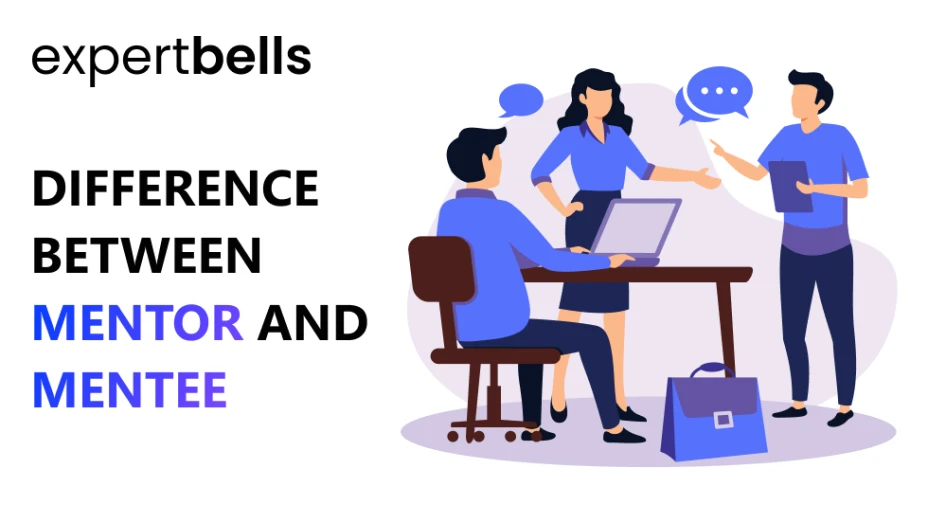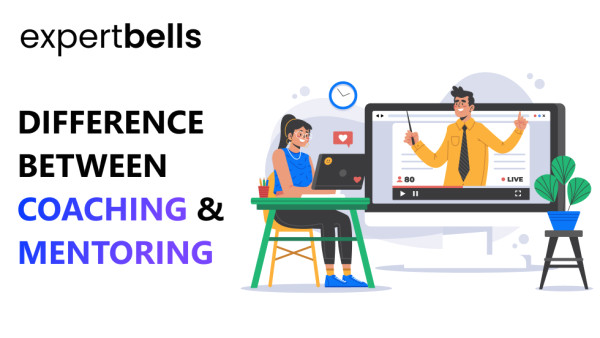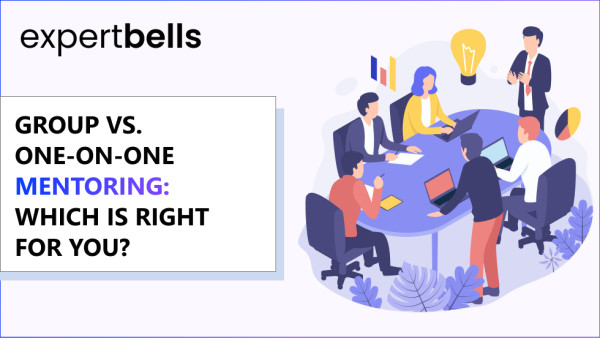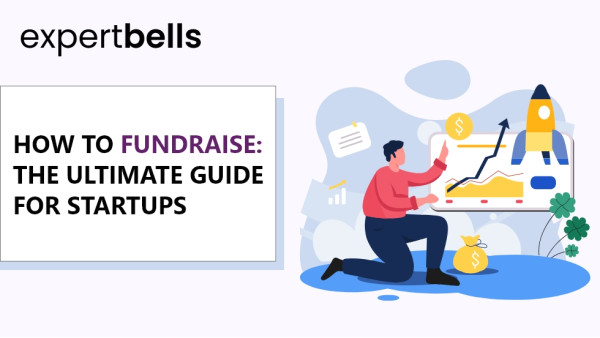Difference Between Mentor and Mentee

If you are planning to join a mentoring program or are in one, it is important to understand the key differences between a mentor and a mentee. That will help you to understand their role and value in the mentee-mentor relationship.
Taking a 1-on-1 mentorship program helps you hone your skills and expertise for your particular role. Maybe you want to boost your business sales or have another objective, the relationship between mentor and mentee helps the professional development of mentees and also enhances the leadership skills of the mentor.
If you want to explore the difference between a mentor and a mentee. This guide discusses the definitions of a mentor and a mentee and also sheds light on their types and benefits.
Mentor and Mentee Definitions
Having a mentor around you can bring drastic transformation to your growth. Here you can understand the definition of both mentors and mentees and how they contribute to your personal and professional development.
What is a mentor?
A mentor is an experienced individual who is willing to help another, usually less experienced person. Mentors are more knowledgeable in specific areas. For example, a fundraising experts mentors helps new startup founders secure their funds. They assist them in identifying potential investors and refining their pitch decks for better presentation. That helps them to secure the necessary capital for the business.
What is a mentee?
A mentee is a learner in a relationship with a mentor. They are someone who lacks proper skills and experience in certain topics and is eager to learn more about them. They are not as similar to students from a formal school but more open-minded and want to enhance themselves as much as they can from their mentor. A mentee seeks the guidance of a mentor and connects with them to master their expertise.
For example, suppose you have a great idea to start your startup, but you do not know how to do it. In this situation, you can seek assistance from a startup mentor, who will guide you on how to start or run a successful startup within your specific goals.
What Are The Differences Between A Mentor And A Mentee?
A mentor is an individual who guides mentees. Whereas, a mentee is someone who seeks guidance from a mentor and becomes smart in specific areas.
Differences Between A Mentor And A Mentee
|
Parameter |
Mentor |
Mentee |
|
Experience |
A mentor is an experienced person with a good understanding of their field. |
Mentees are typically novice individuals who are eager to learn and grow. |
|
Role |
They provide guidance and support for the growth of a mentee. |
They seek guidance to achieve personal and professional goals. |
|
Objective |
They focus on sharing their knowledge and insights with mentees. |
They aim to learn from their mentor. |
|
Responsibility |
They offer guidance and advice for the personal and professional growth of mentees. |
They actively engage in the learning process. |
Types of Mentors
Five types of mentors are described below:
Traditional mentor
A traditional mentor guides and supports a less experienced individual. They help you gain industrial expertise, create networking opportunities, and gain in-depth knowledge about specific industries. This kind of mentorship is better for startup owners, new ventures, or those who want to make professional transitions in their lives.
For example, in a corporate setting, a senior marketing director might mentor a newly hired marketing associate.
Peer mentors
Peer mentors are people who have similar career or academic expertise. They have mutual understanding and take collaborative learning approaches. This type of 1-on-1 mentorship works well for employees who possess similar skill levels. For example, a junior software developer mentors another junior developer.
Reverse mentor
In reverse mentoring, a younger or less experienced individual mentors a more senior or experienced colleague. As with rapidly growing trends and technologies, senior executives often need fresh perspectives and to stay updated on new technologies. For example, a young social media manager mentors a senior executive on using social media platforms.
Career mentor
A career mentor assists mentees in providing guidance and advice in both professional and career fields. Career mentoring helps people navigate career paths and develop career strategies for successful career growth. For example, a data science mentor guides mentees through the best data science practices and tools.
Life coach as a mentor
A life coach as a mentor is an experienced person who guides, motivates, and shows emotional support in the personal life of a mentee. Taking mentorship with them helps you achieve your life goals, including personal and professional ones, and inspires you through your complexities. For example, a life coach helps an individual fix their relationship issues and also aids in improving work-life balance.
Types Of Mentees
There are eight different types of mentees.
The eager learner
The eager learner is enthusiastic about acquiring new skills and knowledge. Mentorship helps them to establish realistic goals, and think outside the box. Such as a junior tech employee rapidly progressing through training.
The undergraduate
The undergraduate mentee seeks mentorship for career development, navigating university life, and finding a balance between personal life and academic goals. For instance, a senior student mentor provides support to juniors in their studies.
The graduate
Graduate mentees focus on getting guidance on academic publishing, or transitioning to industry roles. Their mentors often provide them with constructive feedback and learning support that helps them navigate their careers and make the right decisions in their professional lives. For example, an experienced researcher mentors a graduate student in academic publishing.
The goal-setter
The goal-setter mentee is somebody who sets their objectives and goals and gets guidance from mentors. It helps them to create well-crafted strategies and stay accountable for their work. For example, a student can seek mentorship from their teacher to develop study plans and guide them on their journey.
The transitioner
The transitioner mentee is someone who is going through a significant change in their life, such as a career shift. In this situation, they seek assistance from a mentor to make strategies, get emotional support, and much more. A professional returning to work after a long time can seek mentorship to navigate the situation effectively.
The explorer
The explorer mentees are curious and open to learning from their mentees' experiences and perspectives. Mentors guide them through their options and provide an open path for new interests. For example, a college student who is unsure of their career path can seek mentorship to explore different industries and find their passion.
The parent mentee
Parent mentees are typically those who struggle to strike a balance between parenting and personal and professional growth. They seek guidance from the mentee in terms of time management and goal pursuit. For example, a working parent might seek mentorship to manage career opportunities with their family.
The professional
Experienced professionals seek mentorship for career advancement and skill enhancement. For example, a mid-level manager might seek mentorship to develop leadership skills.
Benefits Of Being A Mentor
These are the major benefits of being a mentor:
Personal Fulfillment
Mentoring provides you with gratification when you make a meaningful difference in someone's life. Witnessing their growth and seeing a smile on their faces gives you a sense of fulfillment.
Professional Growth
Mentoring improves your leadership skills and provides opportunities to meet new people and solve their specific problems. This journey will be full of learning and developing you alongside your mentees. You will gain fresh perspectives and insights that benefit you in your career development.
Legacy Building
Mentoring helps individuals to leave a lasting impact on their personal and professional lives. It is a way to pass on your knowledge, experience, and wisdom to the next generation, creating nothing but a legacy that shapes the future of leaders and contributes to the growth of communities.
Benefits Of Being A Mentee
These are the major benefits of being a mentee:
1. Personal Growth
Mentorship is the most effective way to grow personally through guidance, feedback, wisdom, and a mentor's broader perspective. They help with their in-depth knowledge and open opportunities for personal growth.
2. Skill Enhancement
Mentorship helps you to enhance your skills by giving access to valuable knowledge, expertise, and resources. A mentor works very closely with you and creates tailor-centric skill enhancement strategies.
3. Expanded Networks
Mentor has a rich exploration of different industries. They can help you meet with investors, new partners, and potential customers if you are a business owner. You can make new connections and collaborate with them to grow together.
Conclusion
A mentor provides wisdom and valuable guidance to help mentees navigate their complexities. On the other hand, a mentee is someone who gets advice, suggestions, and support from a mentor. This mentee mentor relationship is a great way to help you develop and achieve your goals and objectives effortlessly. So as we see, there is a huge difference in the definition, roles, and responsibilities of a mentor and mentee, but they coexist together for the development and growth of each other.
Related Articles

Conversion of Private Limited Company into Public Limited Company
A private company is a business entity held under private ownership. The company may issue stock and have shareholders, but company's shares do not trade on public exchanges like BSE or NFT and are not issued through an initial public offering (IPO).
Leave A Reply
Your email address will not be published. Required fields are marked *
Most Popular Blogs


What is a Mentor? Definition, Purpose & More

How To Find A Business Mentor: A Complete Guide

Group vs. One-On-One Mentoring: Which is Right for You?





5 Comments
Lorem Ipsum is simply dummy text of the printing and typesetting industry. Lorem Ipsum has been the industry's standard dummy text ever since the 1500s, when an unknown printer took a galley of type and scrambled it to make a type specimen book. It has survived not only five centuries, but also the leap into electronic typesetting, remaining essentially unchanged. It was popularised in the 1960s with the release of Letraset sheets containing Lorem Ipsum passages, and more recently with desktop publishing software like Aldus PageMaker including versions of Lorem Ipsum.
Lorem Ipsum is simply dummy text of the printing and typesetting industry. Lorem Ipsum has been the industry's standard dummy text ever since the 1500s, when an unknown printer took a galley of type and scrambled it to make a type specimen book. It has survived not only five centuries, but also the leap into electronic typesetting, remaining essentially unchanged. It was popularised in the 1960s with the release of Letraset sheets containing Lorem Ipsum passages, and more recently with desktop publishing software like Aldus PageMaker including versions of Lorem Ipsum.
Lorem Ipsum is simply dummy text of the printing and typesetting industry. Lorem Ipsum has been the industry's standard dummy text ever since the 1500s, when an unknown printer took a galley of type and scrambled it to make a type specimen book. It has survived not only five centuries, but also the leap into electronic typesetting, remaining essentially unchanged. It was popularised in the 1960s with the release of Letraset sheets containing Lorem Ipsum passages, and more recently with desktop publishing software like Aldus PageMaker including versions of Lorem Ipsum.